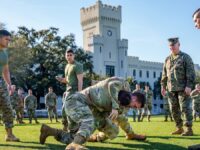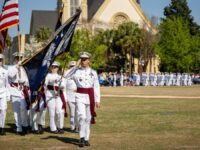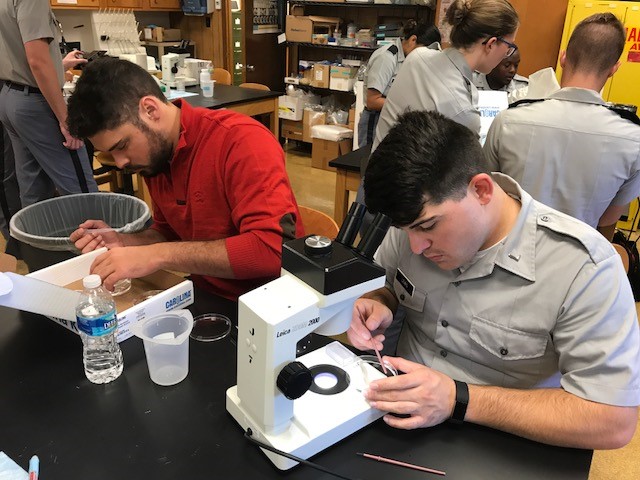
Photo: Day student Adam DeGenova and Cadet Kyle Lewis researching their hypotheses
While Citadel cadets and students are away enjoying fall furlough and Thanksgiving traditions around the U.S., some of their specimens left behind in the classroom lab have completed a complicated biological phenomenon: regenerating their body parts.
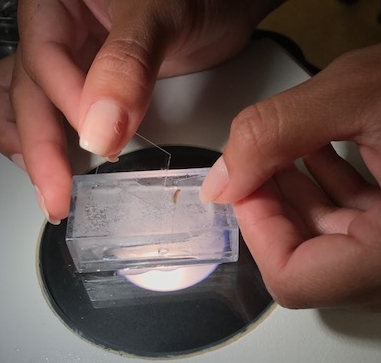
Cadets and students in Professor Kathy Zanin’s developmental biology class are studying regeneration in planarian worms. The juniors and seniors have been designing and implementing amputation experiments to test hypotheses about how these worms regenerate parts.
“These animals have amazing regenerative powers,” said Zanin, a professor of biology and pre-health adviser at The Citadel. “For example if the head is amputated, a new head with eyespots will grow from the trunk of the body.”
The cadets used spring water to culture the flatworms which can be found in fresh water and are generally less than an inch in length, and sometimes seen in a large masses.
“Studying regeneration in these flatworms motivates students to engage in learning the challenging course material of Developmental Biology, like the complicated pathways of limb formation and limb regeneration in higher species,” Zanin explained.
Over a period of about 14 days, the cadets observed their worms transitioning through various stages of regeneration–heads growing new bodies and bodies growing new heads and eyespots−enabling them to validate or rework their hypotheses.
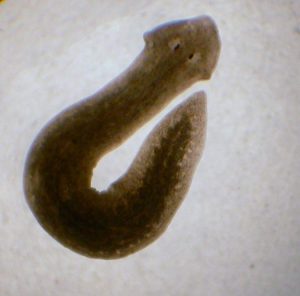
“Throughout the semester, while the class learns how genetic programming allows multicellular complexity to develop from a simple fertilized egg, they also get to experience the wonders of the process by seeing bits of it happening in living organisms in the lab,” Zanin said. “Watching this beautiful progression occur first-hand transforms dry molecular lectures into riveting explanations that compel students to want to know more.”
About The Citadel Department of Biology
The primary mission of the Department of Biology is to offer training, courses, and degrees in the life sciences to four groups of Citadel students. These groups are: undergraduates fulfilling the science requirement in the college’s core curriculum; undergraduate Biology majors; Health and Physical Education students enrolled in the department’s two service courses; and graduate students working toward either the Master of Arts in Biology or Master of Arts in Teaching degree. In addition, the department contributes to the discipline through scholarly and professional activity and to the state and local community through participation in various service related activities. The department also houses the office for Pre-Health Advising.

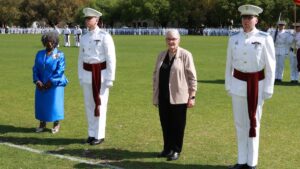 Honoring The Citadel’s 2024 Palmetto Medal Award recipients
Honoring The Citadel’s 2024 Palmetto Medal Award recipients Remembering Citadel professor Paul Nolan
Remembering Citadel professor Paul Nolan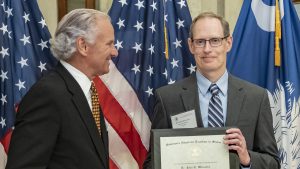 Change-leading Citadel researcher and professor earns accolade from SC governor
Change-leading Citadel researcher and professor earns accolade from SC governor